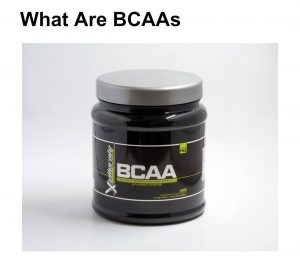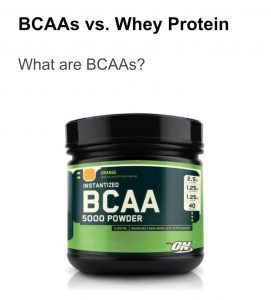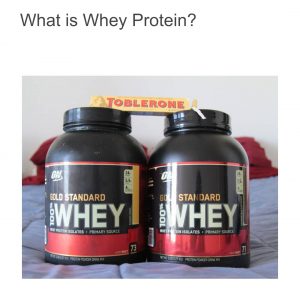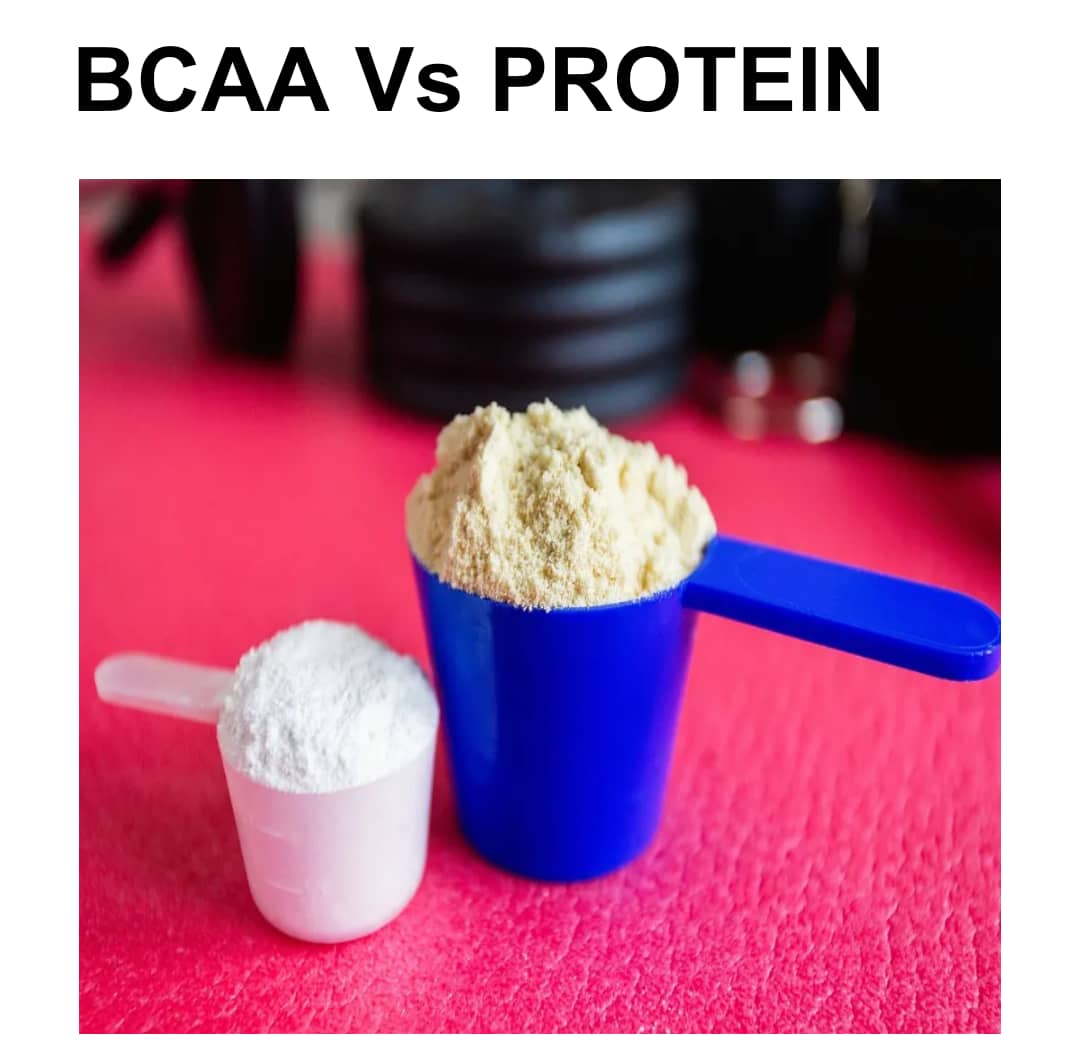BCAA Vs PROTEIN: What’s The Difference
Have you been trying to know what makes Bcaa vs Protein different? You can now participate in fitness activities and build your muscle or maintain your body structure depending on what you want. Kudos to the presence of amino acids in protein and BCAA supplements.
Protein powders and Branched-Chain Amino Acids (BCAAs) are the staple supplements/diets in every fitness routine.
When it comes to boosting your body functions, you need about 20 different amino acids.
Nine of the twenty amino acids are regarded as essential amino acids, which means that they can not be produced by the body but must be gotten from diet or supplements.
These are the nine Essential Amino Acids (EAAs) in alphabetical order:
⦁ Histidine
⦁ Isoleucine
⦁ Leucine
⦁ Lysine
⦁ Methionine
⦁ Phenylalanine
⦁ Threonine
⦁ Tryptophan
⦁ Valine
Every human, including you, is blessed with the body that can produce the remaining eleven amino acids, which are referred to as non-essential.
Although they are also present in the proteins that you eat. The following is a list of the eleven non-essential amino acids:
⦁ Alanine
⦁ Arginine
⦁ Asparagine
⦁ Aspartic acid
⦁ Cysteine
⦁ Glutamic acid
⦁ Glutamine
⦁ Glycine
⦁ Proline
⦁ Serine
⦁ Tyrosine
BCAAs vs protein supplements regimen are both beneficial to make your fitness goals a reality.
In this guide, we will offer you the benefits of each of these supplements, the right amount you can take, which better suits your needs, and the best time to take your supplement.
Before you can conclude on Bcaa vs protein supplements to use for your fitness goals, you must know what they are made of and what they can do.

What Are BCAAs
Branched-chain amino acids (BCAAs) are supplements that consist of three of the nine essential amino acids. They can not be produced by your body but can only be gotten from supplements or food sources.
Unlike protein, BCAAs consist of three specific amino acids that help you build muscle.
BCAA supplements contain zero calories, promote muscle growth, and prevent muscle catabolism.
These essential amino acids are molecular branch chains of elements: leucine, isoleucine, and valine. The chain has complex chemical functions.
BCAA Components and Their Health Benefits
BCAAs consist of the following three branched-chain amino acids:
⦁ Leucine: It’s the most important of the three amino acids. It stabilizes glucose in the bloodstream and helps in the biochemical production of 25% of muscle tissue.
Helps in building muscles, maintaining energy levels, and boosts healing of the muscles. Leucine can metabolize only through fats.
⦁ Isoleucine: This can only be sourced from foods or supplements. Isoleucine can metabolize through carbohydrates and fats.
It’s significant in the physiological functions of your body, such as growth, and immunity.
⦁ Valine: When your muscles are stressed and working, valine brings in more glucose thereby facilitating muscles development, regeneration, and energy production
Alongside leucine and isoleucine, valine aids in the reduction of fatigue during exercise and the improvement of the recovery rate.
It prevents muscle breakdown and perceived muscle soreness among athletes.
The three amino acids in BCAA work together to build muscle, reduce soreness and speed the recovery from workouts.

What are Proteins?
Proteins are macronutrients that are essential for building muscle mass. It’s gotten from animal products and plant-based foods such as legumes and nuts.
Athletes and people who work out regularly require more than eating only beans and meat, they need additional protein supplements.
Protein, fats, and carbohydrates are the macronutrients from which you can derive calories for energy to live.
Proteins are made up of amino acids which are essential to the immune system. Amino acids are organic acids that are made up of carbon, hydrogen, nitrogen, and oxygen.
Health Benefits of Proteins
Protein powder is a nutritional supplement that helps repair tissues, build muscle, make enzymes and hormones, tone muscles, and aid weight loss,
There are 20 amino acids in the protein, they are useful to the body in countless ways.
Your body needs protein to produce enzymes, hormones, and other chemicals for building bones, skin, and muscle.
Here are some health benefits of protein powder for athletes:
⦁ Weight Management
You can manage your weight by taking protein supplements or protein-rich foods. This makes you feel fuller for a longer time thereby reducing regular snacking and maintaining a healthy weight.
It can also reduce cardiovascular diseases such as blood pressure and cholesterol.
⦁ Muscle growth
As an athlete and gym enthusiast, you can take protein supplementation to bulk up after strength training.
Protein supplements are essential for muscle growth in healthy adults who perform weight lifting.
As you know, too much of everything is not good. You may not gain additional benefits if you exceed the normal grams of the supplement.
The right amount of protein powder is 1.6g per kilogram of your body weight or 0.73g per pound of your body weight.
The older you become the less the effect of the protein supplements and the higher the protein requirements for your body.
⦁ Muscle Repair
You can speed up your recovery from damaged muscles and tissues by taking protein powder after exercise.
Muscle performance and muscle protein synthesis can also be improved.
⦁ Added nutrition
Protein powder offers a solution to the insufficient daily recommended amount of proteins for people.
It’s expected that women of age 19 and older should take 46 g, while the men of the same age range should take 56 g of protein supplement.
But people with chronic illness, weight lifters, athletes, and older adults may take more than recommended amounts.
Athletes with an intense training regimen may take about twice the recommended intake. This means they can take 1.4 g to 2 g per kilogram of body weight, that is 112 g to 159 g per day for 175 lbs body weight.
Types of Protein Powder
The different types of protein powder include dairy-based and plant-based powders. Examples are:
⦁ Whey: It is a water-soluble milk protein that contains all the amino acids that your body requires from food.
It’s a quickly and easily absorbable supplement that might reduce body weight and total fat mass in overweight or obese.
⦁ Casein: It’s a dairy protein product rich in glutamine. You can take it after exercising at night.
Glutamine is an amino acid that may help in the quick recovery of muscle.
Being an animal product, digestion of casein is slow, which makes it improper for vegans and people who are allergic to milk.
⦁ Soy: It contains all the essential amino acids that your body needs
It is a fantastic option for people who don’t take dairy.
It has less carbs and fats, thus boosting your endurance and energy during workouts.
⦁ Pea: It is a plant-based protein powder and a good source of arginine amino acids.
Arginine is used to treat chest pain, congestive heart failure (CHF), coronary artery disease, and high blood pressure,
⦁ Hemp: It is rich in omega-3 and omega-6 fatty acids which are known for reducing blood pressure, triglycerides, and cholesterol.
Vegans and people who are allergic to dairy or soy opt for hemp powder that contains essential fatty acids.
Protein shakes vary in price and quality.
It is easier to synthesize protein powder. If you find it difficult to meet up with your daily protein needs, it’s affordable and you don’t need to break your bank.
1 kg of protein powder is about $30. This can feed you for a month if you scoop 20-25 grams a day.
Caution!
You need to be very careful when buying protein powder because many of them contain heavy metals and they are not regulated by The United States Food and Drug Administration(FDA).
NOTE
⦁ Many protein powders contain lead, cadmium, and arsenic.
⦁ Do not consume excess protein powder.
⦁ Choose from a reputable company.
⦁ Calculate your nutritional needs.
⦁ Avoid too much protein powder.
⦁ 80 g per serving is too much for most people.
⦁ Your kidneys and liver may be damaged through excessive consumption of protein.
⦁ The body’s bone and calcium balance may also be affected.
⦁ The filling effect of protein may cause you not to take other beneficial foods, such as fiber-rich fruits, vegetables, and legumes.
BCAAs Vs. Protein
BCAA is a supplement that contains only three powerful amino acids for muscle building but no other real benefits, while protein contains a full range of amino acids that can build muscle and also serve other physiological functions.
The three essential amino acids in BCAA are present in proteins and protein supplements. This means that by taking protein, you are simply taking BCAA supplements and other amino acids.
Protein must be broken down into components of amino acids through metabolism before they can be used for various purposes in your body, while the amino acids in BCAA are readily available to build your body muscle.
The reason for taking any of these two supplements or foods that contain the amino acids must be taken into consideration before you can decide on which one to go for.
If your reason for taking the supplement is to bolster your immune system, repair tissues, build muscle, make enzymes and hormones, tone muscles, and aid weight loss, then you need to consider taking protein foods or protein supplements.
But if your main reason is to develop your body muscle mass then the right option is BCAA supplements. Also, if you are training for advanced competition, BCAA may be better for you.
When to take Protein
Since proteins overlap BCAAs in their nutritional values, it may be better to take proteins if you want to:
Lose Weight – A protein diet helps to increase your metabolism, reduce the hormone that makes you feel hungry, and curb your appetite thereby causing you to lose weight.
Maintaining muscle mass – If you want to maintain your muscle mass, especially when you are getting older, protein will be better for you.
Do you know that you lose 3% to 8% of your muscle mass after age 30? This is what leads to bone fracture in old age.
To prevent muscle loss, it’s recommended that you take a uniform protein level of about 25-30 grams per meal over the day.
Build muscle – If you are an athlete or training competitively, your muscle tissue will naturally break down. You may take protein supplements 15-60 minutes after exercise to rebuild your muscle mass.
The anabolic window is the period during which you can get the most out of the nutrients you take. It ranges from 15 minutes to 2 hours after a workout.
Protein supplement is for the overall purpose of your body’s health.
Muscle is mainly made of protein and can only be maintained or built by taking protein.
When to take BCAA’s
BCAAs are highly recommended for trained and advanced athletes because they are known to:
⦁ Build muscle,
⦁ Reduce soreness,
⦁ Reduce fatigue,
⦁ Prevent muscle loss, and
⦁ It may benefit liver disease
One of the advantages of BCAAs over protein supplements is that BCAAs can repair and build muscle almost immediately
Take BCAAs when you:
Need Immediate Muscle Building – Leucine is one of the BCAAs amino acids that activate the production of muscle in your body.
Taking 5.5grams of BCAAs immediately after your training workout can increase your muscle protein by more than 20%.
BCAAs are readily assimilable for muscle development. It is a calorie-restricted supplement.
BCAAs don’t have diverse amino acids as much as protein and can be taken with or without water.
BCAAs are more expensive than protein supplements because it is harder to synthesize and flavor.
A kilogram of BCAAs supplement may cost about $60. Though you don’t need as much protein.
BCAAs vs. Whey Protein
What are BCAAs?

BCAA supplements help you to reduce your feelings of fatigue, reduce muscle soreness, and allow you not to be exhausted easily during training.
Among other amino acids, BCAAs for are more effective in the repair, growth and strength of your muscle because they are not broken down in your liver, but are stored directly in your muscle.
What is Whey Protein?

Whey Protein consists of the three amino acids in BCAA and many other amino acids. It can be used to replace meals.
With whey protein, you have your protein intake boosted, build your muscle and strength.
Whey and casein are the two proteins in regular milk. While it takes longer for your body to absorb casein, whey protein is rapidly absorbed and stimulates muscle building in your body.
Types of Whey Protein
Whey protein supplements include :
⦁ whey protein concentrate,
⦁ whey protein isolate, and
⦁ whey protein hydrolysate.
You can take BCAAs with Whey protein but make sure you take BCAAs before or during your workout. Whey protein is more effective for post-workout.
Taking both BCAA and whey protein gives better results.
CONCLUSION
You can grow your muscle if you combine regular activities and exercise with protein intake.
BCAAs are known for alleviating muscle soreness, decreasing muscle fatigue and. building muscle,
You have everything you need to know about BCAAs vs Protein supplements/foods here at the tip of your fingers.
Now that you know better!
Make sure you get the most out of the supplements that work best for you.
